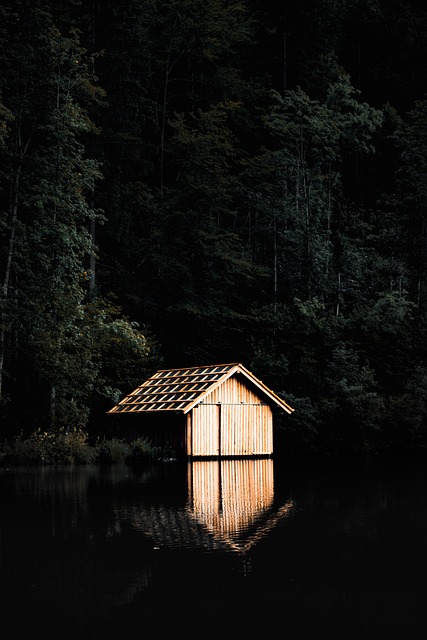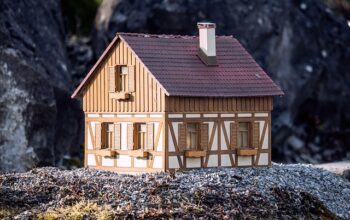House sitting is a cost-effective and enriching lifestyle choice for snowbirds and travelers looking to avoid extreme weather or extend their travels while saving on accommodation costs. It allows sitters to live rent-free in exchange for maintaining homes and properties, providing a stable yet nomadic living situation with the added benefits of pet care, local immersion, and cultural enrichment. Prospective house sitters should create detailed profiles on trusted platforms, emphasizing their skills and willingness to travel, and engage with communities to secure opportunities. Successful house sitting requires careful planning, including understanding legal responsibilities, securing appropriate insurance, and establishing clear agreements with homeowners. Preparation involves thorough research of the local area, establishing good relationships with neighbors, and maintaining open communication with property owners. By adhering to these guidelines, house sitters can enjoy a lawful and mutually beneficial living arrangement that combines the comforts of home with the joys of travel.
Explore the art of house sitting through the lens of snowbirds and travelers, an increasingly popular alternative accommodation solution. Our comprehensive guide delves into the nuances of house sitting, offering valuable insights for those looking to extend their travels or retirees seeking a cost-effective, cultural exchange during seasonal migrations. Discover how house sitting can enrich your nomadic lifestyle with its unique blend of hospitality and adventure. This article navigates the process of securing a house sitting opportunity, preparing for your new role, understanding legal aspects, and maximizing your experience to ensure a mutually beneficial arrangement. House sitting isn’t just about finding a place to stay; it’s about immersing in local life, caretaking with purpose, and embracing the world one home at a time.
- Understanding House Sitting: A Comprehensive Guide for Snowbirds and Travelers
- The Benefits of House Sitting for Nomadic Lifestyles
- How to Secure a House Sitting Gig as a Snowbird or Traveler
- Preparing for Your First House Sit: Tips and Best Practices
- Legal Considerations and Responsibilities When House Sitting
- Maximizing Your Experience: Enhancing Your Stay as a House Sitter
Understanding House Sitting: A Comprehensive Guide for Snowbirds and Travelers

House sitting is a mutually beneficial arrangement where a homeowner entrusts their residence to a sitter in their absence, ensuring the property remains maintained while the sitter enjoys temporary accommodation at no or minimal cost. For snowbirds seeking seasonal escapes from harsh climates and travelers looking for extended stays abroad, house sitting offers an alternative to traditional accommodations like hotels or rentals. This guide aims to demystify the process of securing a house-sitting assignment, highlighting its advantages, and providing practical steps for those interested in this nomadic lifestyle.
Snowbirds who migrate between northern and southern climates during different seasons will find house sitting a particularly advantageous option. It allows them to return to a familiar environment, with the comfort of home and the assurance that their property is being cared for in their absence. Similarly, travelers can benefit from the authentic experience of living like a local, which house sitting often provides. This arrangement not only offers cost savings but also the opportunity to care for pets or gardens, further integrating one into the lifestyle of the community they are visiting. Understanding the nuances of house-sitting platforms, developing a trustworthy profile, and effectively communicating with homeowners are key components for successful participation in this global community. Prospective sitters should familiarize themselves with the ethical considerations and responsibilities associated with house sitting to ensure a positive experience for both the homeowner and themselves.
The Benefits of House Sitting for Nomadic Lifestyles

House sitting offers a unique opportunity for individuals embracing a nomadic lifestyle, particularly for snowbirds and travelers who seek to maintain a sense of home while exploring new environments. This practice not only provides a cost-effective alternative to traditional accommodations but also allows sitters to enjoy the comforts and familiarity of a personal residence. For those who prefer the stability of a home base amidst their travels, house sitting serves as an ideal solution, enabling them to care for a property in exchange for free rent. This arrangement can range from simple tasks like mail collection and plant watering to more involved responsibilities such as pet care or occasional maintenance. The benefit of maintaining a consistent address is also significant; it ensures the security of the property while away, and for digital nomads, it offers a stable mailing address necessary for business operations. Furthermore, house sitting allows travelers to immerse themselves in local communities, adopting a lifestyle that blends seamlessly with the rhythms of their host environment. This level of integration can lead to deeper cultural experiences and a more enriched sense of place, all while enjoying the freedom and adventure of a nomadic journey.
How to Secure a House Sitting Gig as a Snowbird or Traveler

Securing a house-sitting gig as a snowbird or traveler is an excellent way to enjoy free accommodations while ensuring that someone’s home remains well-cared for during their absence. To increase your chances of landing such opportunities, it’s crucial to start by creating comprehensive profiles on reputable house-sitting platforms. Highlight your experience with pet care, gardening, or household maintenance if applicable, as these skills can set you apart from other candidates. Additionally, be transparent about the lengths you are willing to travel for a sit, and consider offering to trade your skills for the opportunity to stay in a particular location. Networking within snowbird communities and traveler circles can also open doors; word-of-mouth recommendations are often powerful endorsements. Always ensure that you have references from previous house-sitting assignments and maintain an active presence on social media, showcasing your responsible behavior and any relevant qualifications. Lastly, stay patient and persistent; the right opportunity will come your way if you consistently demonstrate reliability and a genuine interest in property caretaking. With the right approach and a bit of perseverance, house sitting can be an enriching experience for both snowbirds and travelers looking to explore new destinations without the burden of accommodation costs.
Preparing for Your First House Sit: Tips and Best Practices

Embarking on your first house-sitting adventure as a snowbird or traveler involves careful preparation to ensure a smooth and successful experience. Prior to accepting a house-sitting assignment, it’s crucial to assess your skills and preferences to match them with the responsibilities of the home you’ll be looking after. Research the specific tasks required by the homeowner, such as plant maintenance, pet care, or basic household upkeep, and ensure you feel confident in fulfilling these duties. Familiarize yourself with the neighborhood, local services, and emergency procedures to handle any unforeseen issues swiftly and effectively.
To prepare for your role, create a detailed checklist of routines and tasks you’ll perform regularly, including scheduled maintenance, security protocols, and communication methods to stay in touch with the homeowner. It’s also wise to establish a rapport with neighbors, as they can be valuable resources and provide additional eyes and ears on the property while you’re in residence. Lastly, make sure all necessary contact information is readily available, including that of the homeowner, a local handyperson, and a trusted friend or family member who can be reached in an emergency. By adopting these proactive steps and best practices, you’ll be well-equipped to handle your house-sitting responsibilities with confidence, allowing both homeowner and sitter to enjoy peace of mind during their absence.
Legal Considerations and Responsibilities When House Sitting

When house sitting for snowbirds and travelers, it’s crucial to understand the legal framework governing such arrangements. House sitters must be aware that they are taking on a role akin to a temporary guardian of another’s property, which comes with certain responsibilities. These include maintaining the security of the home, ensuring its upkeep, and adhering to local laws and regulations during their tenure. It’s imperative to clarify the scope of your duties with the homeowner beforehand to avoid any legal complications. This may involve understanding the nuances of property law, tenant rights, and landlord-tenant relationships, even though you are not a formal tenant.
Moreover, house sitters should familiarize themselves with insurance requirements to protect both their own interests and those of the property owner. Some homeowners may require proof of renters’ insurance or specific coverage for high-value items left in the home. This step safeguards against potential claims or damages that could occur during the house sitting period. Additionally, house sitters should be knowledgeable about any local ordinances that pertain to occupancy and short-term living arrangements. By addressing these legal considerations and responsibilities, house sitters can ensure a smooth and lawful experience for all parties involved.
Maximizing Your Experience: Enhancing Your Stay as a House Sitter

When embarking on a house-sitting journey as a snowbird or traveler, maximizing your experience hinges on meticulous preparation and adaptability to new environments. As a house sitter, you are afforded the unique opportunity to live in someone else’s home, often in desirable locations, for extended periods. To ensure your stay is both comfortable and enriching, begin by familiarizing yourself with the local area. Research nearby attractions, transportation options, and community resources that align with your interests. This due diligence allows you to seamlessly integrate into the neighborhood and make the most of your surroundings.
Moreover, maintaining open communication with your homeowners is paramount. Discuss their expectations, routines, and any specific instructions for pet care or home maintenance. House sitting isn’t merely about occupying a space; it’s about embodying the role of a custodian who values the homeowner’s property as if it were their own. Take the time to understand the home’s systems, from heating and cooling to Wi-Fi networks and security measures. By doing so, you can address any issues promptly and maintain a harmonious living environment throughout your tenure. House sitting for snowbirds and travelers is an adventure that combines the comforts of home with the excitement of travel; with careful planning and attention to detail, your experience as a house sitter can be truly rewarding.
house sitting offers a mutually beneficial arrangement for both property owners and travelers, particularly snowbirds who seek seasonal living solutions. By engaging in this practice, one can enjoy the comforts of home while exploring new environments. The article has outlined the key aspects to consider when embarking on a house-sitting journey, from understanding the role to securing opportunities, preparing for the experience, and navigating legal responsibilities. With careful planning and adherence to best practices, house sitting can prove to be a rewarding and cost-effective travel option. For those intrigued by the nomadic lifestyle or in search of alternative accommodations, house sitting stands as a viable and enriching alternative.



